#author: Stefan Wul
Note
do you ever read scifi or fantasy in french? i am trying to read more sff that was originally published not in english but it's not easy to find 💀
I do! It’s not my favourite genre but one of my friends loves it so I read a bunch of SFF books every year ahead of her birthday to try and find a gift for her. I’m glad I do this because it’s allowed me to discover N.K. Jemisin’s Broken Earth trilogy which was amazing, and I don’t know if I would have picked it up otherwise!
Here are some French-language authors I’ve read or plan to read (unfortunately English translations are few and far between :( I bolded the names for which I found English translations—if you read in another language you can check out the non-bolded authors, there are often translations available in other languages long before English ones)
When it comes to classics you've got Pierre Boulle (Planet of the Apes of course; also Garden on the Moon, which is (deservedly imo) less known), Jacques Spitz (La Guerre des mouches—it was translated but not into English), René Barjavel (The Ice People, Ravage, Future Times Three—I read them a long time ago but I remember them as very sexist even by French classic standards), Bernard Lenteric (La nuit des enfants rois), Alain Damasio (La Horde du Contrevent—maybe too recent to be a classic but it’s everywhere. I was surprised to find no English translation!), Bernard Werber (I feel like he rehashes the same 3 ideas again and again but some of his earlier stuff was fun), Alexandre Arnoux (Le règne du bonheur), Jules Verne of course, Stefan Wul (Oms en série which was adapted into the film La Planète sauvage—Fantastic Planet in English. I like the film better!) And some I haven’t read: Georges-Jean Arnaud, Serge Brussolo (I liked his Peggy Sue series when I was in middle school but it spooked me so much I haven’t dared to pick up any of his SFF for adults, like Les semeurs d’abîmes), Élisabeth Vonarburg.
Newer authors: Estelle Faye (L’arpenteuse de rêves, Un éclat de givre—I tend to like her worldbuilding more than her plots); Sandrine Collette (The Forests—if you count speculative fiction as SFF) (I didn’t like it at all personally but others might), Jean-Philippe Jaworski (I really liked Janua Vera; didn't like Gagner la guerre but it was mainly because I have a low tolerance for rape scenes in fantasy books) (he’s about to be translated into English according to his editor), Stéphane Beauverger (Le déchronologue)
More authors I haven't yet read: Pierre Pevel (The Cardinal's Blades—I've been told it's "17th century Paris with dragons"), Romain Lucazeau (Latium), Laurent Genefort (Lum’en), Christian Charrière (La forêt d’Iscambe), Roland Wagner (La saison de la sorcière), Aurélie Wellenstein (Mers Mortes—I love the synopsis for this one), Magali Villeneuve (La dernière Terre, trilogy)
And non-French, non-anglo SFF authors: Maryam Petrosyan (my review of the Gray House last year was that I understood maybe 1/3 of it but I liked it anyway!), Hao Jingfang (haven’t read her yet), Arkady & Boris Strugatsky (idem), Jaroslav Melnik (I’ve read Espace lointain (originally Далекий простір) but didn’t like it much), Andreas Eschbach (The Carpet Makers), Walter Moers (I read The City of Dreaming Books back when I was still learning German and found it very charming), Liu Cixin (I loved The Three-Body Problem but The Dark Forest was so sexist it made me not want to pick up the third volume), Lola Robles (El informe Monteverde, translated as Memoirs of an Interstellar Linguist), Elaine Vilar Madruga (Fragmentos de la Tierra Rota), Tatiana Tolstaya (The Slynx), Karin Tidbeck (Amatka), Emmi Itäranta (Memory of Water, The Moonday Letters), Angélica Gorodischer (I’ve read Kalpa Imperial and found it only so-so but it always takes me a while to warm up to characters or a setting so I struggle with short story collections. I’ll still give Trafalgar a try) Also my favourite fantasy book as a kid was Michael Ende’s Neverending Story, I was obsessed with it. I re-read it in the original German a few years ago and it was still great.
#ask#book recs#i feel like sff has long had a poor reputation in france. like it's seen as 'not real literature'#not necessarily by readers but by literary awards and mainstream outlets that promote books#the genre doesn't get a lot of attention from those so it's hard for authors to become well-known#it's often seen as a genre for kids and teenagers—i know i had an easier time finding sff books by french authors when i was younger#scifi for primary school kids like christian lamblin's le survivant or philippe ebly's space operas in bibliothèque verte#or sff for middle school kids: the peggy sue series; linus hoppe by a-l bondoux; more recently the nuées series by nathalie bernard#but yeah in the adult sff aisle of nonspecialised bookshops it's mostly anglo authors + always the same handful of french ones
370 notes
·
View notes
Photo
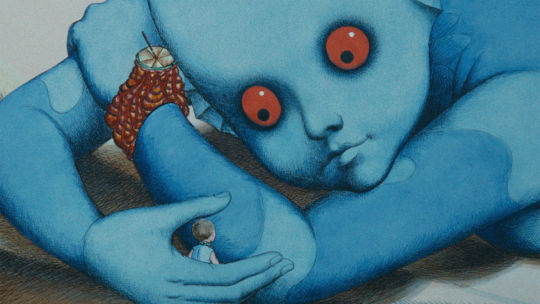



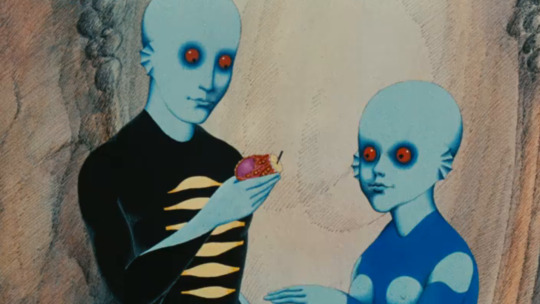
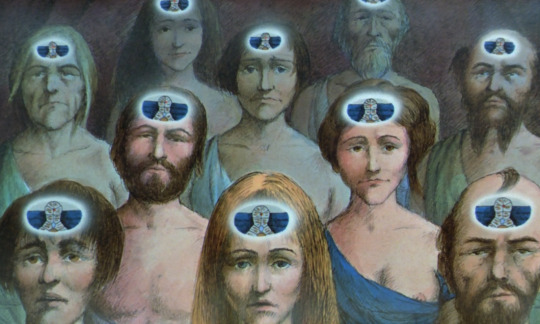

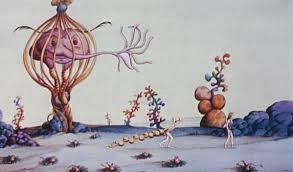

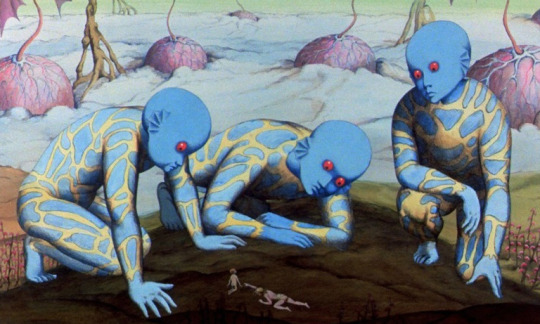
Fantastic Planet (René Laloux, 1973)
Cast (voices): Jennifer Drake, Eric Baugin, Jean Topart, Jean Valmont, Sylvie Lenoir, Michèle Chahan, Yves Barsacq, Hubert de Lapparent, Gérard Hernandez, Claude Joseph, Philippe Ogouz, Jacques Ruisseau. Screenplay: Roland Topor, René Laloux, based on a novel by Stefan Wul. Cinematography: Boris Baromykin, Lubomir Rejthar. Graphic designer: Roland Topor. Film editing: Hélène Arnal, Marta Látalová. Music: Alain Goraguer.
Fantastic Planet" isn't a very satisfactory translation of La Planète Sauvage, the original French title, but the more accurate "Wild Planet" might have led audiences in 1973 to expect a film about a world overrun with motorcycle gangs. Conceived and written by René Laloux and Roland Topor, from a novel by Stefan Wul, designed by Topor and animated by the Jiři Trnka Studio in Prague, Fantastic Planet is a sci-fi fable about the nature of humanity and its place in the universe. The humans in Fantastic Planet are called Oms (from the French hommes), and they are tiny things in a world where the dominant species is the Draags, giant blue humanoid creatures with big red eyes. The Draags consider Oms at best curious little animals and at worst vermin that need periodic efforts at pest control. At the beginning of the film we see a female Om carrying her baby, on the run but being flicked back by a great blue Draag finger each time she thinks she has made it to safety. It turns out that she is being played with by some Draag children, and when the Om mother is accidentally killed, a Draag girl named Tiwa takes the baby as to raise as a pet and calls him Terr. Tiwa outfits Terr with a kind of electronic collar that she can use to pull him back to her if he runs off. As the years pass and Terr grows up, Tiwa tires of her pet and one day he makes his escape and joins up with other Oms, one of whom helps him remove the collar. But Terr has something to share with his rescuers: The Draags receive their education through a headset, and a glitch in Terr's collar has allowed him to listen in on her lessons. Moreover, in his escape, he has stolen Tiwa's headset, and can now share the knowledge possessed by the Draags with his fellow Oms. Eventually, this leads to a revolution in which the Oms are finally able to go to war with the Draags and exploit their vulnerabilities. Much has been made of the fact that the animation was done in Czechoslovakia, beginning in 1967 in the era of the "Prague Spring," and that work on the film was interrupted by the 1968 Soviet invasion. Laloux experienced constant interference from the suspicious authorities, delaying the completion of the film, and the political background adds a piquancy to the finished product. But Fantastic Planet is hardly an allegory of resistance to Soviet repression. It has its roots, as Laloux noted, in the satire of Rabelais, and English speakers will probably find a Swiftian echo in the confrontation of little people and giants. The animation using paper cutouts also recalls Terry Gilliam's work for Monty Python, but the imagination is all Laloux's and Topor's. Alain Goraguer's jazz soundtrack adds immeasurably to the delicate, melancholic tone of Fantastic Planet, giving it a timeless quality where other products of the psychedelic era, like Yellow Submarine (George Dunning, 1968), now seem dated.
74 notes
·
View notes
Text
The oldest French fantasy novel?
In 2005, the French fantasy author Laurent Kloetzer read the masterpiece of the classic 19th century author Flaubert: Salammbô. Upon finishing the book, he decided to post online a mock-review of the novel, treating it as if it was a new publication, a recent fantasy novel of the 2000s. This mock-review gathered some attention, and is one of the reasons many people like to evoke Flaubert’s Salammbô as the “first French fantasy novel”.
Here is a rough translation of the review:
The French fantasy exists, and I discovered it in a collection of general literature! We know the reluctance of some authors to be published in collections with colorful covers, probably fearing to lose a potential audience. It is probably what Gustave Flaubert thought, a new author very promising for the genre. His surprising novel, titled Salammbô after the name of the female protagonist, proves that there is a possibility for my favorite type of literature to be recognized and respected in France.
Carthage and its cruel civilization at the time of Hamilcar Barca are the core and the main subject of this book. The author pretends in an annex that he heavily documented himself and that he has read everything there was to read on the topic, but it was probably to make the literary critics believe he had written a historical novel, a genre that is very trendy nowadays. However, no need to dig deep to understand that it is not a pile of badly-digested erudition, neither a patchwork of references stitched to each other : rather it is a powerful dreaming, a crazy and shimmering imaginary world, a Carthage just as unreal and fantastic as the gods and heroes of Gustave Moreau’s paintings.
Sir Flaubert crushes with his shadow all the French-speaking authors that tried to walk the same path as Tolkien’s. What incredible images! What coherence, what harmony, between the Gods, the palaces, the landscapes, the clothes! The surprising sonorities of the names, of the characters, of the precious stones and of the materials carry us in a far-away otherworld. We are taken into a civilization that can seem alien to us, for it was vanquished and destroyed without leaving much traces behind, and yet in which we will find men whose feelings are too close to our owns.
I haven’t even spoken of the plot, an abundant, complex, remarkable plot! We will find there, without ever being bored, battle scenes, an extraordinary party, politics, magic, the burglary of a sacred temple (worthy of Fafhrd and the Gray Mouser!), deadly tricks, human sacrifices… and battles, yet again. It is about the war of an old city against its mercenaries, of the impossible love between a barbarian and a princess lost in her mystical quest. Life is present everywhere. People dit a lot in Salammbô, blood is spilled, but it is to better regenerate the world.
Flaubert’s imagination would be the closest, in terms of Anglo-Saxon authors, to the one of Michael Moorcock, the one used to conceived his Elric series, and even more, his Gloriana. Just like Moorcock, the French authors likes baroque universes, colorful apocalypses, and atmospheres with a strange eroticism… But the reader can rest assured: no never-ending trilogy here! The novel is in one block, dense, balanced, perfectly built, from the introduction scene to the astounding but needed conclusion. Just like with Tolkien, the universe is complete, coherent and mastered, it is the goal and the foundations of the work. The battles are just as epic and bloody as those of Robert Howard, and I already talked about the surprising closeness with Fritz Leiber’s stories.
But unlike all those authors, that I can only read translated, our author is French and his novel is served by a fabulous language that is the true entryway to his imaginary world – a language that brings all the truth to this dream. I only ever felt spirited away by the magic of writing only once, with Stefan Wul’s Nôo.
With Salammbô, Gustave Flaubert gave to the French literature of the imagination a work that cannot be ignored, and that all the lovers of the genre must read. We can only wish him a long and successful career!
#fantasy#fantasy novel#french fantasy#gustave flaubert#review#flaubert#salammbô#tolkien#foreign fantasy#michael moorcock
7 notes
·
View notes
Photo
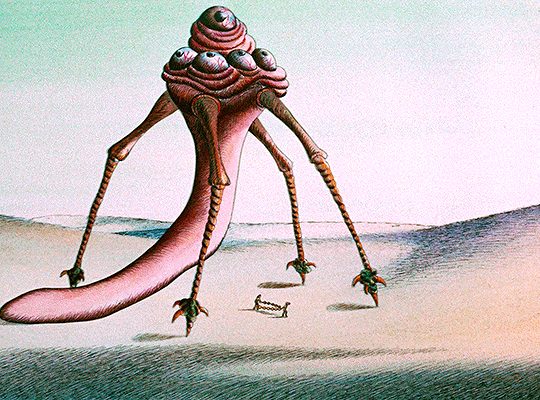

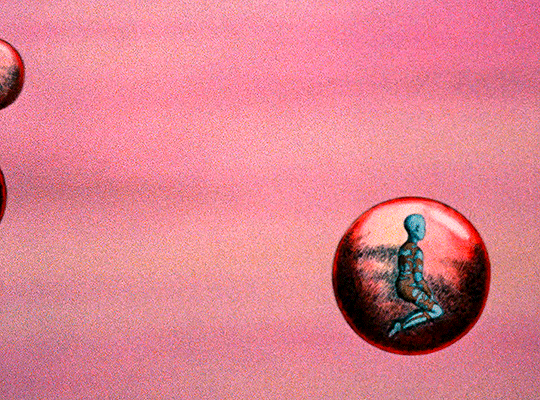
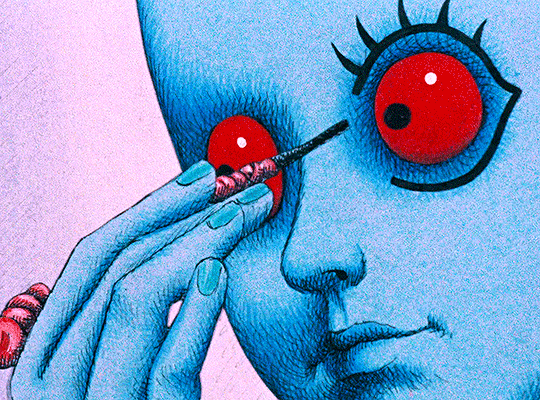
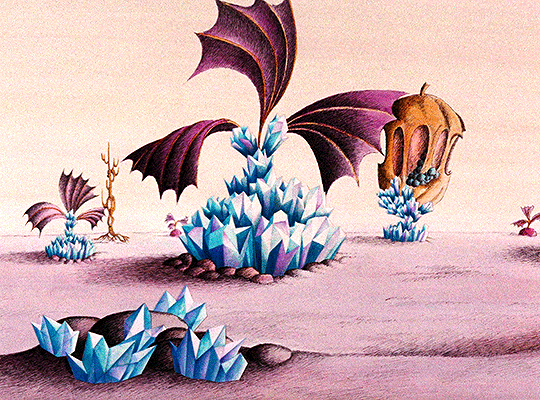
“Neither Oms nor Draags will profit from destruction. We must try to make peace.”
– La Planète sauvage / Fantastic Planet (1973) dir. René Laloux
adapted from Stefan Wul’s 1957 novel Oms en série
#pattinsonrobert#uservilu#Fantastic Planet#La Planète sauvage#René Laloux#author: Stefan Wul#ours#by michi#surreal cw
9K notes
·
View notes
Text
Bryan garner elements of legal style pdf
BRYAN GARNER ELEMENTS OF LEGAL STYLE PDF >> DOWNLOAD LINK
vk.cc/c7jKeU
BRYAN GARNER ELEMENTS OF LEGAL STYLE PDF >> READ ONLINE
bit.do/fSmfG
Bryan A. Garner is a best-selling legal author with more than a dozen titles to his credit, including A Dictionary of Modern Legal Usage, The Winning Brief, A In Mr. Garner, I have found a champion. In "The Elements of Legal Style", writers wishing to take their craft beyond the stars will find a valuable Bryan A. Garner. Inspired by Strunk and White's The Elements of Style, this book clearly (often wittily) explains the full range of what legal writers need to know: mechanics, word choice, structure, and rhetoric, as well as all the special conventions that legal writers should follow in using headings Thomson/West, 2012. — 567 p. In this groundbreaking book, Scalia and Garner systematically explain all the most important principles of constitutional, statutory, and contractual interpretation in an engaging and informative style with hundreds of illustrations from actual cases. Is a burrito a sandwich? Garner also provides abundant examples from the best legal writers of yesterday and today, including Oliver Wendell Holmes, Clarence Darrow, Frank If you want to make your writing clearer, more precise, more persuasive, and above all more stylish, The Elements of Legal Style offers the surest The elements of typographic style. PDF Online The Book Of Highs For Full. Free PDF The House of Morgan: An American Banking Dynasty and the Rise of Modern Finance For Full. [PDF] Download The Recognition of Sakuntala (Dover Thrift Editions) For Full. Download as PDF or read online from Scribd. Documents Similar To Legal Writing in Plain English Bryan Garner. Carousel Previous Carousel Next. Garner is an acknowledged expert not just on legal literature but also on the practical mechanics of showing modern legal writers how to achieve their And its exhaustive index puts everything within its covers at your fingertips. Praise for The Elements of Legal Style: "Publishers each year spew out BEST PDF The Elements of Legal Style Bryan A. Garner BOOK ONLINE. english. Файл: PDF, 10,95 MB. Legal Writing in Plain English. A Text with Exercises. University of Chicago Press. Bryan A Garner. The Elements of Legal Style. Oxford University Press. Bryan A. Garner. - Free Online Library The Elements of Legal Style Hardcover - 18 April 2002 by Bryan A. Garner (Author) › Visit Amazon's Bryan A. Garner Page. Conceive by Strunk and White 's The Elements of Style, tha book actually ( often wittily) explains the full range of what legal writers need to worry Bryan A. Garner, president of LawProse, Inc., conducts writing and drafting seminars for lawyers and judges around the country. He also teaches at Southern Methodist University School of Law and has written widely on the English language and legal style. Garner, Bryan A. 2002. 288 Pages. Last updated 6 hours 46 mins ago. Cameron Sutton. This is the sort of book The Elements of Legal Style reads to feel worldly. Just like the spate of American pop fiction in the late eighties, this is overwhelmingly colonized literature, in that it pretends to reveal some Garner, Bryan A. 2002. 288 Pages. Last updated 6 hours 46 mins ago. Cameron Sutton. This is the sort of book The Elements of Legal Style reads to feel worldly. Just like the spate of American pop fiction in the late eighties, this is overwhelmingly colonized literature, in that it pretends to reveal some
https://lequhamefo.tumblr.com/post/666763224365023232/hitachi-solfege-fridge-manual, https://guqisomiwa.tumblr.com/post/666750625315520512/taunar-supremacy-armour-instructions-for-form, https://wexirademu.tumblr.com/post/666766634198892544/niourk-stefan-wul-pdf, https://mucurawic.tumblr.com/post/666755453818126336/psychology-of-human-behavior-in-telugu-pdf, https://dawenikun.tumblr.com/post/666756330081615872/yo-yo-mismo-irene.
0 notes
Photo
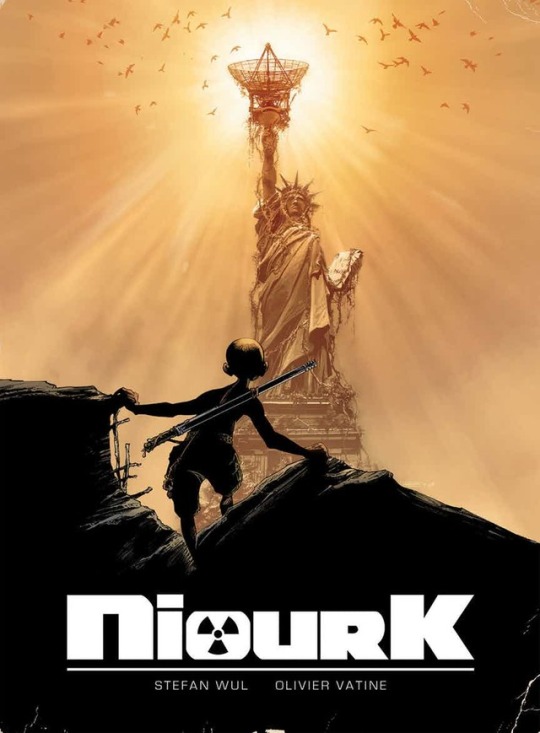
Niourk HC
Stefan Wul (W) and Olivier Vatine (A/Cover)
On sale Jan 10
FC, 176 pages • $24.99 • HC, 9” x 12”
On a post-apocalyptic Earth, where mankind has regressed to a handful of primitive tribes hunting and foraging for a meager, oppressed existence, a lone black child, shunned by other members of his tribe, sets out on an epic journey to what used to be known as New York, land of the gods! Written by Stefan Wul, author of cult favorite Fantastic Planet, illustrated by acclaimed French comics artist Olivier Vatine, this unusual hero’s journey is a memorable examination of a child’s compassion—and the human race’s cruelty.
Post apocalyptic sci fi from the author of Fantastic Planet.
First time published in English!
Translated by Brandon Kander and Diana Schutz.
15 notes
·
View notes
Photo

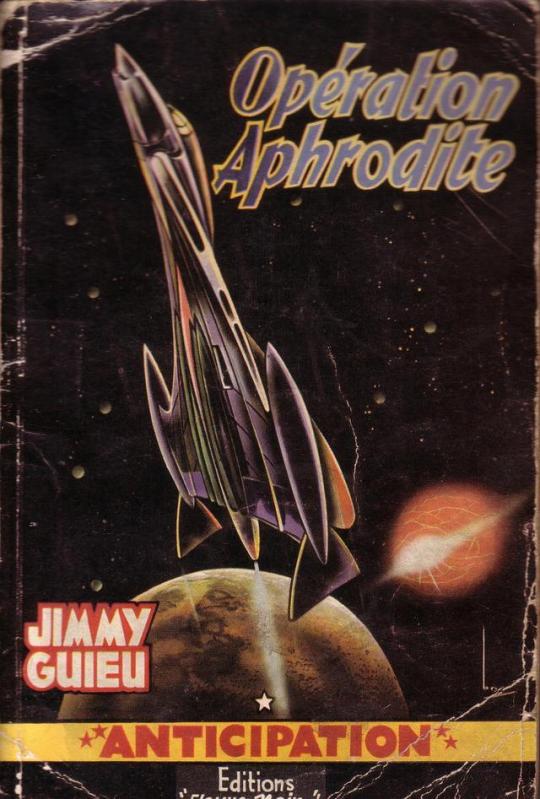
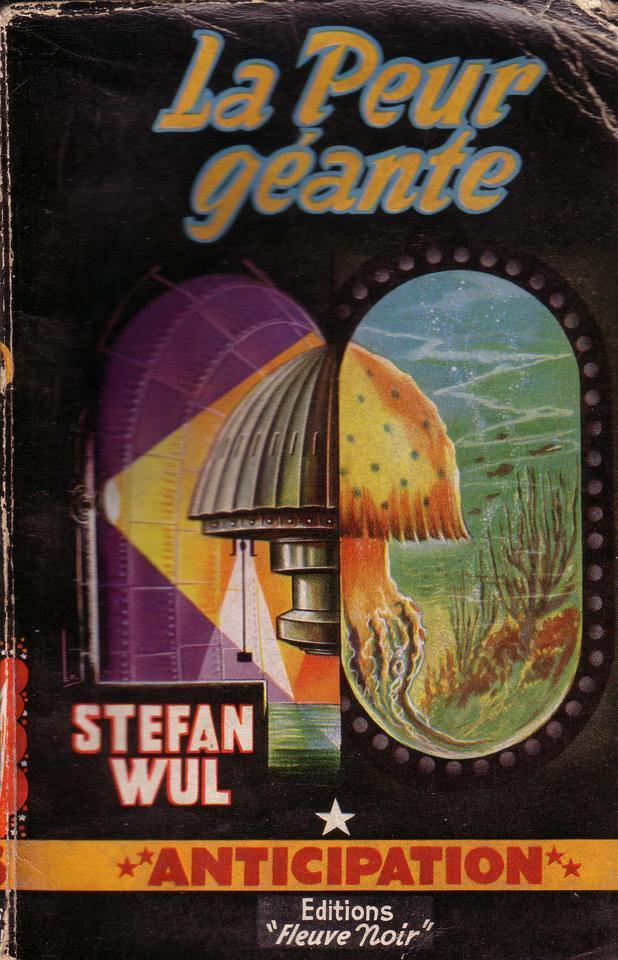
Collection “Anticipation”
3 titles found this morning (that saves me the effort of going to look for them in my reserve). 3 authors from the beginnings of this long running collection (2001 titles, 1951-1997).
Jean-Gaston Vandel (pen name of Jean Libert & Gaston Vandenpanuyse) wrote 20 titles of social anticipation (tone & inspiration ahead of their time) before concentrating on spionage novels under the pseudonyms Paul Kenny, Jack Murray and Graham Livandert. - : “Territoire Robot” (#43, 1954)
Stefan Wul, 11 novels that will count for ever as highlights of the collection. -: “La Peur géante” (#96)
Jimmy Guieu, 82 novels, a mainstay of the collection. Underrated. At least, his first works were bounding space or time operas. -“Opération Aphrodite” (#47, 1955)
cover art: René Brantonne
publisher:Editions Fleuve Noir
general director:Armand de Caro
literary director:François Richard
source:amsaklapper’s collection
#anticipation#paperbacks#science fiction#fleuve noir#jean-gaston vandel#stefan wul#jimmy guieu#brantonne#sf covers
16 notes
·
View notes